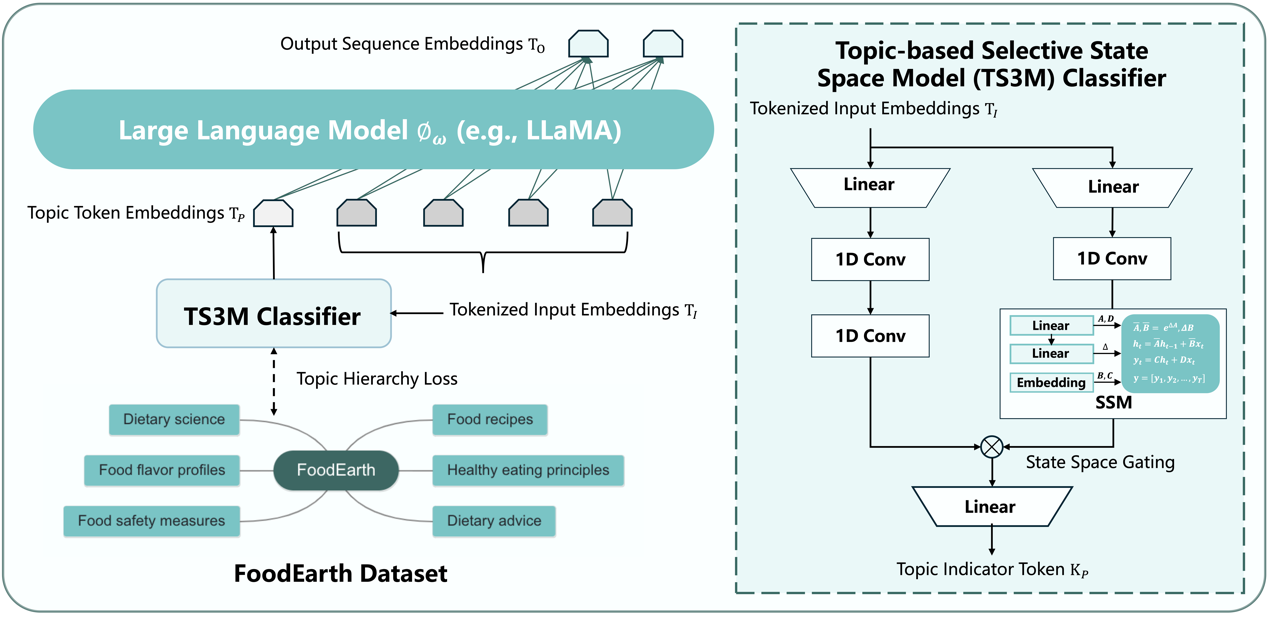Congratulations! VIPL’s paper on food computing, "FoodSky: A food-oriented large language model that can pass the chef and dietetic examinations" (Authors: Pengfei Zhou, Weiqing Min, Chaoran Fu, Ying Jin, Mingyu Huang, Xiangyang Li, Shuhuan Mei, Shuqiang Jiang) is accepted by Patterns (Cell Press). Patterns is an academic journal under Cell Press, aiming to publish groundbreaking original research in the field of data science, share cross - disciplinary data science solutions across computer science, life science, and social science, and promote communication and cooperation among interdisciplinary researchers.
Food is the cornerstone of both survival and social life. As a crucial pillar for human health and social sustainable development, the intelligent transformation of food science has become a global focus. With the increasing diversification of dietary cultures and the urgent need for chronic disease prevention and control, how to achieve precise nutritional interventions, cross - cultural dietary adaptation, and diet - disease correlation mining through artificial intelligence technology has become the core issue to be addressed urgently in the field of food intelligence. Although general - purpose large language models perform remarkably in various tasks, they face limitations such as fragmented knowledge systems and coarse - grained semantic parsing in the food domain, and it is difficult for them to meet the demand for specialized knowledge in complex tasks like culinary method innovation and personalized nutrition guidance.. To address these challenges, this paper constructed FoodSky, the first large language model designed for the culinary and dietetic fields. By integrating fine - grained semantic perception and multi - level reasoning technologies, this paper systematically broke through the techinical bottelenecks of food intelligence. To build the knowledge foundation of the model, this paper first integrated food data from multiple authoritative sources to construct the food corpus FoodEarth. Further, we developed the topic - based selective state space model (TS3M) and the hierarchical topic retrieval augmented generation algorithm (HTRAG) to improve FoodSky's ability to capture fine - grained food semantics and generate context - aware food - relevant text. TS3M enhances the accuracy of the model's output by integrating topic - relevant information; HTRAG aims to enhance the generation capabilities by retrieving from an external knowledge base during inference. This paper evaluated FoodSky across multiple benchmarks, including the Chinese National Chef Examination and Dietetic Examination (CDE), Food Long Conversation (FoodLongConv), and Food Question Answering (FoodQA). Additionally, this paper carried out ablation studies on the model structure, training data size, and generalization ability in different regional cuisines. Extensive experiments show that FoodSky demonstrates expert - level performance in the chef and dietetic examinations, achieving accuracy rates of 83.3% and 91.2% respectively, and can provide reliable advice for culinary and dietary questions. Moreover, FoodSky can not only inspire culinary creativity and promote healthier eating patterns but also establish a new benchmark for domain - specific large language models in addressing real - world food - related challenges.

Download:
